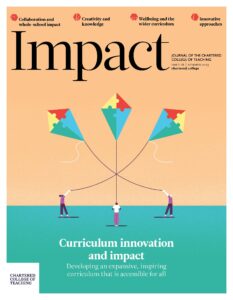Understanding ‘spiritual thinking’: An exploration
Written by: Christopher Tay

9 min read
Christopher Tay, Headteacher, Longden CE Primary School and Nursery, Shropshire, UK; Visiting Lecturer in ITE, University of Chester, UK
This article is based on a two-year inquiry into children’s spiritual thinking in a rural Anglican primary school. Funding from the Farmington Institute supported the development of a conceptual framework for spirituality that provides children with a common language with which to explore their own spirituality and offers a starting point for a pedagogy of spiritual development. The inquiry was motivated by concerns over the crisis in mental health among older children and young people, and was premised on the hypothesis that an earlier understanding of spirituality as the exploration of personal sources of meaning, value and purpose may lead to later ability to draw on such understanding when negotiating the transition to early adulthood.
Confusion over the nature of spiritual education and development is well documented. This lack of common gr
Join us or sign in now to view the rest of this page
You're viewing this site as a guest, which only allows you to view a limited amount of content.
To view this page and get access to all our resources, join the Chartered College of Teaching (it's free for trainee teachers and half price for ECTs) or log in if you're already a member.
- Alexander HA and Carr D (2006) Philosophical issues in spiritual education and development. In: Roehlkepartain E, King P, Wagener L et al. (eds) The Handbook of Spiritual Development in Childhood and Adolescence. Thousand Oaks, CA: SAGE Publications, pp. 73–91.
- Georgiuou G (2018) Balanced RE: Thoughts on RE curriculum design. Impact 4: 42–45.
- Hedges H (2012) Vygotsky’s phases of everyday concept development and the notion of children’s ‘working theories’. Learning, Culture and Social Interaction 1(2): 143–152.
- Johnson CN (2000) Putting different things together: The development of metaphysical thinking. In: Rosengren KS, Johnson CN and Harris PL (eds) Imagining the Impossible: Magical, Scientific and Religious Thinking in Children. Cambridge: Cambridge University Press, pp. 179–211.
- Johnson CN and Boyatzis CJ (2006) Cognitive-cultural foundations of spiritual development. In: Roehlkepartain E, King P, Wagener L et al. (eds) The Handbook of Spiritual Development in Childhood and Adolescence. Thousand Oaks, California: SAGE Publications, pp. 211-223.
- Nozick R (1989) The Examined Life: Philosophical Meditations. New York: Simon and Schuster.
- Ofsted (2004) Promoting and evaluating pupils’ spiritual, moral, social and cultural development. Available at: https://dera.ioe.ac.uk/4959/1/Promoting_and_evaluating_pupils%27_spiritual,_moral,_social_and_cultural_development_(PDF_format).pdf (accessed 15 March 2023).
- Vygotsky L (1986) (ed. Kozulin A) Thought and Language. Cambridge, MA: MIT Press.
0
0
votes
Please Rate this content
Subscribe
Please login to comment
0 Comments
Oldest
Newest
Most Voted
Inline Feedbacks
View all comments










